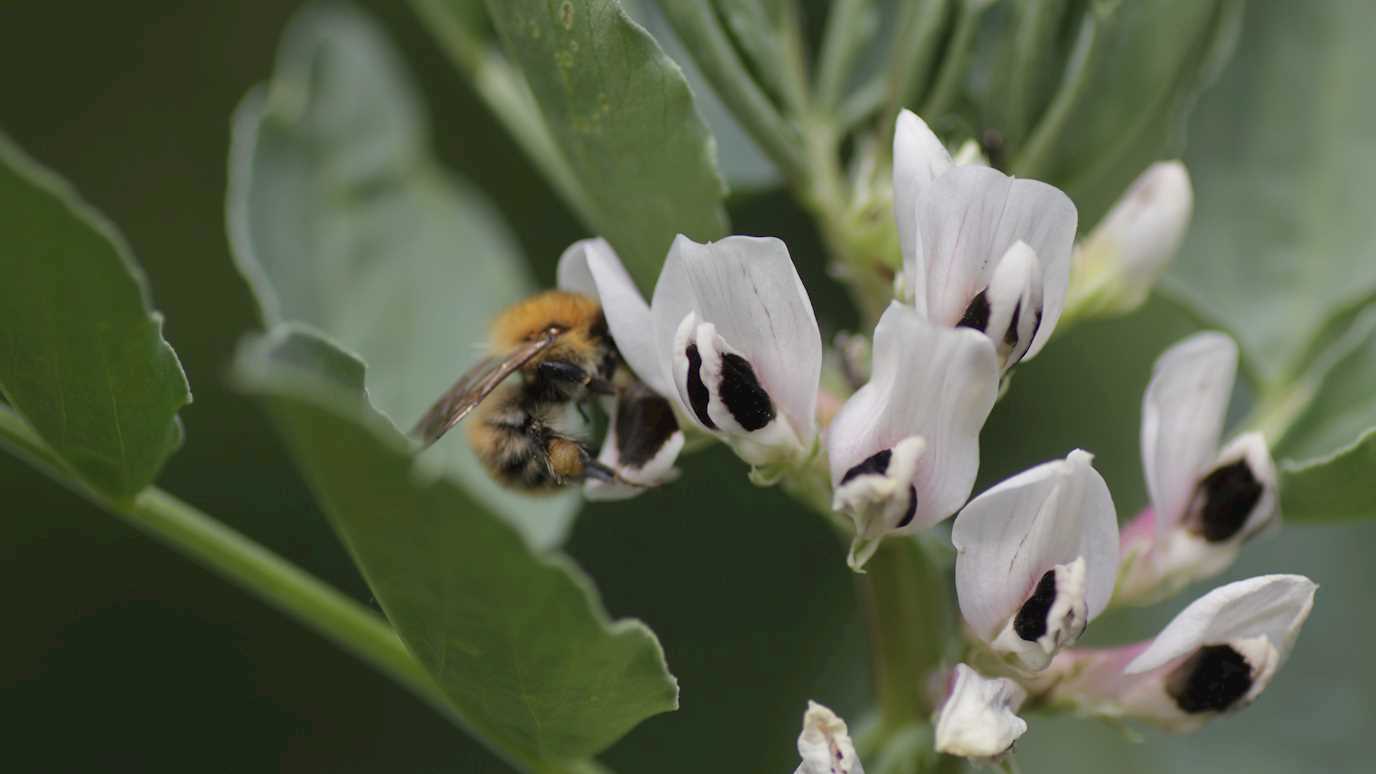A new study published by researchers from Royal Holloway, University of London, has confirmed that bees exposed to multiple agricultural chemicals have significantly higher mortality rates than would be predicted from their combined impact.

Photo by Dr Emily Bailes
Bees are routinely exposed to a combination of environmental stressors such as pesticides, parasites, and poor nutrition. The researchers analysed data from the last two decades and found that when bees are exposed to these stressors in combination, they interacted to increase bee mortality. In particular, exposure to multiple agrochemicals was more likely to increase bee mortality than other stressors.
Risk assessment processes around the globe – which are used to determine whether agrochemicals are safe to use – focus on one product at a time, and do not consider how agrochemicals interact with one another in relation to animal health. These results, published in the journal Nature, confirm that exposure to combined stressors can have a far more harmful impact on bees than current environmental risk assessments predict.
Dr Harry Siviter, joint first-author on the paper and formerly of the Department of Biological Sciences at Royal Holloway, now at The University of Texas at Austin, said: “Bees are key to the health of our planet but the number of stressors they encounter is increasing as a consequence of human activities. Crops are treated with multiple agrochemicals, so bees are routinely exposed to several different chemicals simultaneously. Our analysis found that the interactions between these chemicals significantly increased bee mortality, beyond the levels we would predict if we just added the negative impact of multiple chemicals together.
“Unfortunately, these interactions are not considered when agrochemicals are licenced for use, and so their impact on bees will be underestimated”.
Dr Emily Bailes, joint first-author on the paper and formerly of the Department of Biological Sciences at Royal Holloway, now at Bangor University, added: “Our analysis shows an overall trend for more severe interactions when agrochemicals interact, but I think it is also important to note that this does not mean that more harmful effects do not occur for other types of stressor. In particular there was very little research on the effects of nutrition. From a risk assessment perspective, this variation should not be overlooked.”
Professor Mark Brown from the Department of Biological Sciences at Royal Holloway, concluded: “Our results mean that regulators and producers of agrochemicals must fundamentally change their approach to risk assessment. The regulatory process in its current form does not protect bees from the unwanted consequences of complex agrochemical exposure.
“A failure to address this, and to continue to expose bees to multiple anthropogenic stressors within agriculture will result in a continued decline of bees and pollination services, to the detriment of human and ecosystem health.”
























